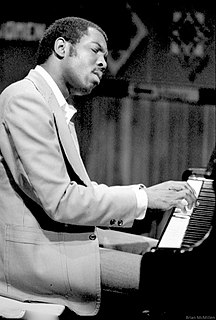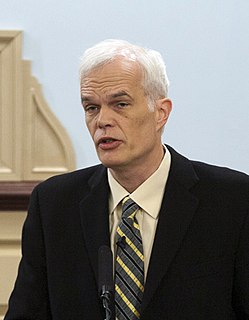A Quote by Edward Gibbon
It was no longer esteemed infamous for a Roman to survive his honor and independence.
Quote Topics
Related Quotes
Every man is responsible for defending every woman and every child. When the male no longer takes this role, when he no longer has the courage or feels the moral responsibility, then that society will no longer be a society where honor and virtue are esteemed. Laws and government cannot replace this personal caring and commitment. In the absence of the Warrior protector, the only way that a government can protect a society is to remove the freedom of the people. And the sons and daughters of lions become sheep.
As the patriots of seventy-six did to the support of the Declaration of Independence, so to the support of the Constitution and Laws, let every American pledge his life, his property, and his sacred honor;-let every man remember that to violate the law, is to trample on the blood of his father, and to tear the character of his own, and his children's liberty.
Discussing the attempts of Augustus' generals to add to the extent of the Roman Empire early in his reign:
The northern countries of Europe scarcely deserved the expense and labour of conquest. The forests and morasses of Germany were filled with a hardy race of barbarians, who despised life when it was separated from freedom; and though, on the first attack, they seemed to yield to the weight of the Roman power, they soon, by a signal act of despair, regained their independence, and reminded Augustus of the vicissitude of fortune.
The thing about Gambit is that he's a man who knows how to adapt to survive. He plays things by ear, depending on the situation, and never feels obligated to follow the rules, because the only rules that matter are his own sense of honor. Ultimately, that sense of honor includes 'doing no harm' - at least, not to the innocent.
Let no one imagine that he will lose anything of human dignity by this voluntary sell-out of his all to his God. He does not by this degrade himself as a man; rather he finds his right place of high honor as one made in the image of his Creator. His deep disgrace lay in his moral derangement, his unnatural usurpation of the place of God. His honor will be proved by restoring again that stolen throne. In exalting God over all, he finds his own highest honor upheld.
Degrees of ability vary, but the basic principle remains the same: the degree of a man's independence, initiative and personal love for his work determines his talent as a worker and his worth as a man. Independence is the only gauge of human virtue and value. What a man is and makes of himself; not what he has or hasn't done for others. There is no substitute for personal dignity. There is no standard of personal dignity except independence.






































